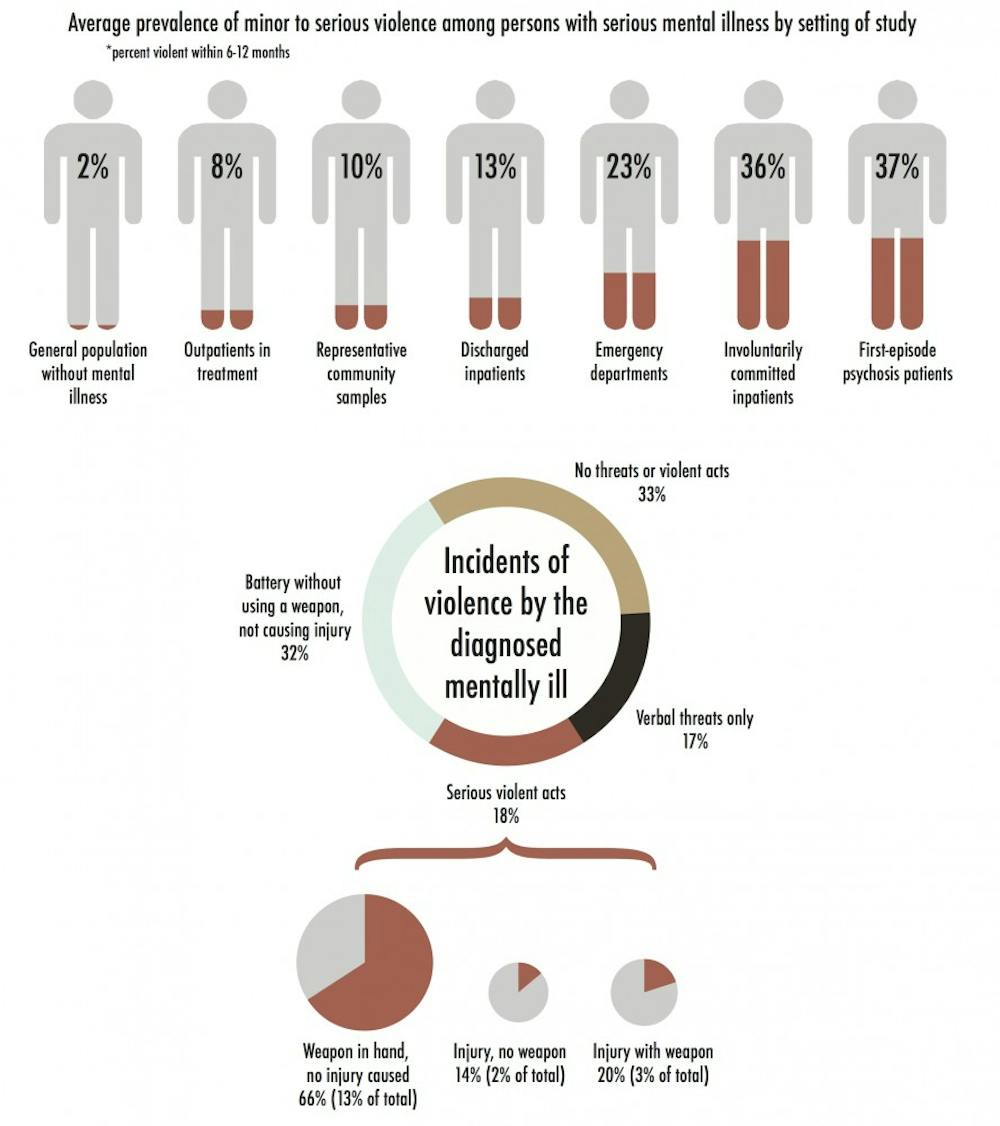The University Center for Biomedical Ethics and Humanities, the University Institute for Law, Psychiatry and Public Policy and the Law School hosted a panel on gun violence and mental illness Wednesday.
During the panel Jeffrey W. Swanson, Duke University professor of psychiatry and behavioral sciences, presented his research on the epidemiology of gun violence and the public health issues that accompany both gun violence and mental illness, and Richard J. Bonnie, Harrison Foundation Professor of Medicine and Law, discussed problems facing policy makers, clinicians and mental health advocates.
Swanson noted that while 60 percent of American adults believe people with schizophrenia are likely or very likely to commit a violent act, only about 12 percent of schizophrenics display any violent tendencies in reality, and fewer than one percent commit homicide against a stranger.
“When you look at the epidemiology of violent behavior and mental illness, we’ve known for decades that the vast majority of people with mental illnesses are not violent,” Swanson said.
While it is true that the seriously mentally ill are more likely to commit acts of violence than the general population, they are also far more likely to be victims than perpetrators of violence.
“The mass casualty shooter is atypical, really atypical, of people with mental illnesses, the vast majority of whom are not violent and never will be, and really atypical of the perpetrators of gun crime, most of whom do not have mental illness,” Swanson said.
Swanson also said better mental health care would likely reduce gun violence, but would have a greater impact on suicide rates than homicide rates.
“We could probably reduce gun violence a lot if we provided better mental health care,” Swanson said. “But 95 percent of the reduction would be from reducing suicide, not homicide.”
Both Swanson and Bonnie said there need to be better methods both for taking guns away from people experiencing dangerous episodes and for returning gun rights to people who no longer present a threat.
Bonnie made reference to the August shooting of Roanoke cameraman Adam Ward and reporter Alison Parker at the hands of a former fellow employee.
“Obviously, he was carrying around this anger for a very long time,” Bonnie said. “ And there was a particular incident after he was discharged where he exhibited threatening, highly threatening behavior...it certainly demonstrated elevated risk for violence.”
Bonnie also said if there had been a law in effect in Virginia which he called “gun violence restraining orders,” the shooter’s gun rights could have been removed for a period of time. Similar laws exist in Connecticut, Indiana and California.







